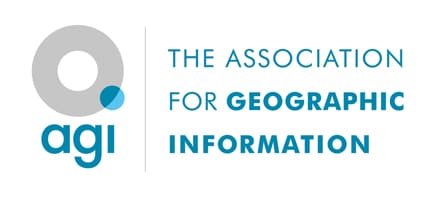The Association for Geographic Information (AGI), has released the results of its first survey of skills. Drawing on feedback from its membership, partners and organisations operating within both the public and private sectors, the report highlights issues and trends relating to recruitment, retention and talent development.
With the UK ranked as second in the global geospatial readiness index and with dedicated geospatial companies in the UK generating over £6 billion in annual turnover, providing employment for over 30,000 people and securing over £1 billion in equity investment since 2016, the results of the survey will be used to inform action taken by the AGI, government and other stakeholders to address skills shortages and promote sustained growth.
“There is some real positivity to be taken from the results of this inaugural survey as it shows a thriving sector that is, on whole, able to recruit and retain staff with the required skills,” commented Ian Maxfield, Co-chair of the AGI’s Education and Skills Working Group. “However, with the emergence and adoption of new technologies such as Artificial Intelligence and Machine Learning it may be harder to attract candidates with these skills as there is greater competition with other sectors.”
Headline conclusions from the AGI Skills Survey report show a thriving sector with nearly 80% of organisations having recruited within the last six months. More than 60% of those who have recently recruited, cited a higher demand for geospatial services within the business as the reason. A similar percentage, 77% of organisations surveyed, expect to recruit in the near future listing core data skills, such as analysis, processing and manipulations, as top of their requirement list.
The majority of organisations surveyed say they are also able to retain staff citing company culture and career progressions opportunities as attractive qualities. However, organisations who are unable, or only partly able, to retain staff and those who are looking to recruit, cite pay as a barrier and this was especially prominent within the public sector.
“The results of this report are particularly interesting in the light of a recent study of the Scottish geospatial skills landscape, also supported by AGI. The national picture is clearly not straightforward, and we’ll continue to explore and monitor the skills picture across the UK as a whole,” added Anne Robertson, Co-chair of the AGI Education and Skills Working Group
The AGI will take the results of this survey to make connections to pathways at all stages of the geospatial sector value chain for example university course offerings, apprenticeships and wider providers. The AGI will also work to link these results to programmes aiming to professionalise the sector through routes such as competency frameworks.
The AGI Skills Survey report can be downloaded, free of charge, from https://www.agi.org.uk/skills-survey/ and organisations who are keen to be involved in the next survey are urged to register their interest in participation by emailing skills@agi.org.uk.

